Alumni Journalists on Facing Danger, Keeping Calm Covering the 2020 Election
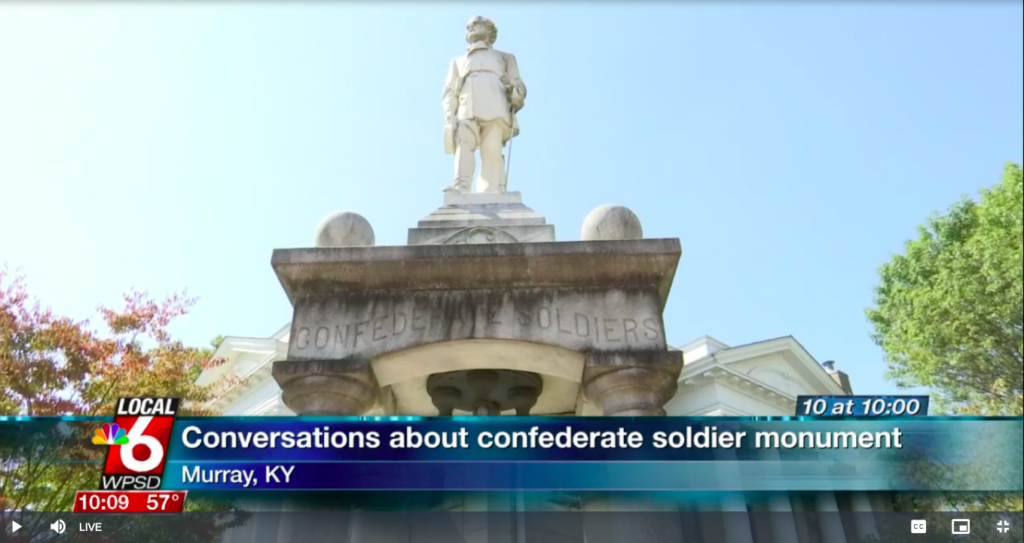
By Molly Loughman
Broadcast news reporter Temi Adeleye, MA’17 admits she’s put herself in harm’s way in the pursuit of stories. For example, last fall she covered a heated confrontation — without colleagues — between Sons of Confederate Soldiers and Black Lives Matter supporters.
As Adeleye, a multimedia journalist with WPSD Local 6 (NBC) in Paducah, Kentucky, shared with a group of Emerson students, “There was a point where a Trump supporter brought a shotgun, and not being familiar with guns, I didn’t know if it was loaded or not. I stayed there to get video, but coming back to the station, I kind of broke down because what might have happened there? I put myself in a compromising position just to get video.”
The honest exchange was hosted by Emerson’s Journalism Department during a virtual event, “Covering the 2020 Elections: Panel Discussion” on January 25.
“Is this story worth my life?” Adeleye continued. “It never is. Remind yourself you’re human and you matter. You never want to put yourself in harm’s way just to get content that very well might not make it back to the station if you don’t.”
Six alumni and now professional TV reporters/producers from across the country spoke candidly with students about their experience covering the 2020 election amid contentious politics and COVID restrictions. Moderated by Janet Kolodzy, Journalism Department chair and former senior writer/editor at CNN, the event drew alumni insights on their greatest challenges/resolutions, the pressures and negativity from social media, distrust in media, and keeping current while keeping calm.
What were your biggest challenges and how did you work through them?
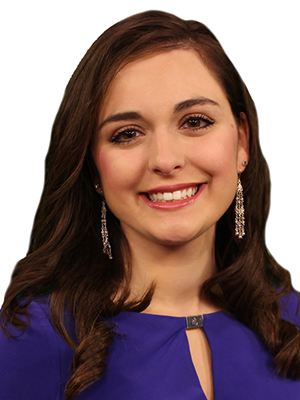
I was shocked at the amount of biased things I saw on sources that, before, I didn’t realize might have a swing one way or the other. I was extra careful throughout the election, of course, because we may be getting material from one of these big sources, but we still have to make sure we do that thorough research to get both sides and get every angle possible. A source may not even realize they have a bias. A lot of times we are localizing stories from other sources, so it was important to ensure those sources aren’t biased. Even the local sources, which are usually nonpartisan, were taking sides, so just paying attention to detail on things that in prior years we might not have had to was really important throughout this election season.
Priscilla Liguori ‘16
Reporter/Film-in Anchor, ABC 27-WHTM
Harrisburg, Pennsylvania
@PriscillaABC27
How did you deal with the pressure of social media? And how did you witness people being nasty or offensive?
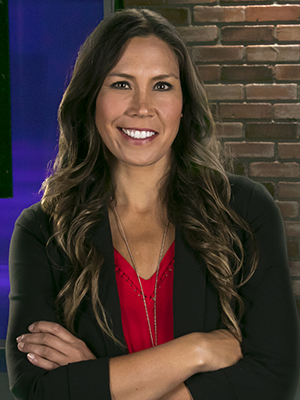
One day, before one of my live shots, a guy came up out of nowhere and threw a hot coffee at the camera lens. That was interesting. I don’t know what that was about, but I think that just kind of shows the climate of what we’re dealing with right now. People are on edge. And unfortunately, because [journalists] are out there, oftentimes it’s taken out on us. Because for many people, we’re a part of their family. They turn on the TV, they see us everyday and feel they can say things to us. That gets pretty frightening and difficult sometimes. My station had security guards going out with me, and we’d always have to be in pairs. We can’t be alone for anything. It’s just the way things are these days, unfortunately.
Robin Murdoch ‘97
Reporter, Fox 2 -WJBK
Detroit, Michigan
@RMurdochFOX2
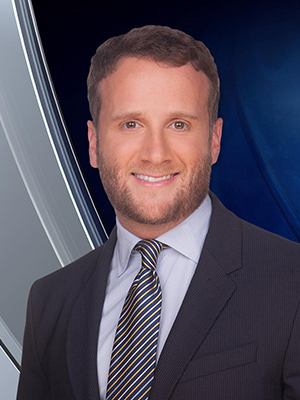
In the San Francisco Bay Area, we’re used to police accompanying us to neighborhoods. [But while covering violent protests in San Francisco] a security guard just pulled me back and said, ‘You can’t — if you’re going to get an interview, you have to go towards where the police are because if they fire rubber bullets, you’re going to get hit.’ It was shocking to cover something like that in the United States. It was crazy, especially post-election and inauguration days.
Andrés Brender ‘05
Video Journalist, Telemundo
San Francisco, California
@abrenderT48
How do you keep yourselves up to date without feeling so overwhelmed?
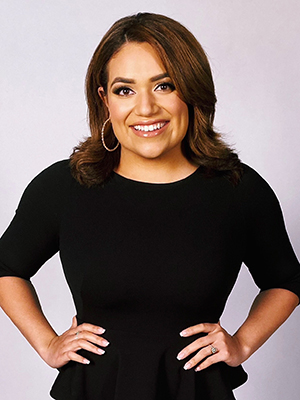
I think I’ve learned to just take everything in stride… It’s not worth a conversation with everyone, but every once in a while, [if] I feel there’s someone I can educate or speak with, I definitely take the time to. And for social media, they implemented rules that we have to report threatening messages. I learned to take time for myself because, at the end of the day, we’re all human and there’s a lot going on in society and it affects us differently, because we are human.
Angelina Salcedo ‘17
News Reporter, 10 News WTSP-TEGNA
Tampa Bay, Florida
@AngelinaWTSP
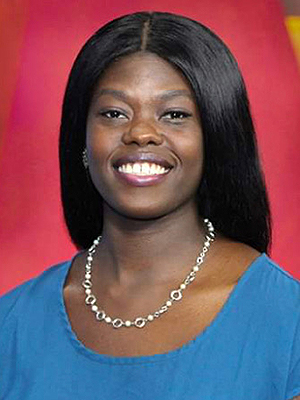
In Kentucky, our inbox was just full at some points with hate mail and people questioning our ethics, saying we were biased, and weren’t telling the truth. We always look at it as, we’re getting this mail from both sides; so since we were hearing from both Democrats and Republicans, we’re doing our job correctly. I just learned I can’t read all the comments and take them as a personal attack, just because [the news I delivered is] not something that people wanted to hear. At the end of the day, I just need to do my own job, which is reporting the news as quickly and as accurately as I can, and just getting that out there. And whatever hate people had against me, as long as I was following the code of ethics and doing my job — that’s that.
Temi Adeleye, MA’17
Multimedia Journalist, WPSD Local 6 NBC
Paducah, Kentucky
@TemiAdeleyeWPSD
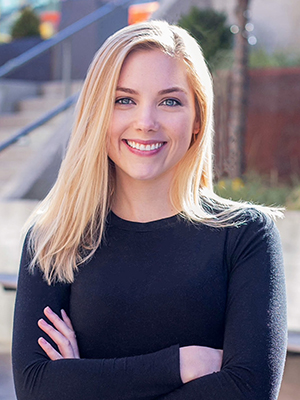
I’m behind the scenes as a producer managing our night team, and we have security issues. But one thing we’ve experimented with is just to give somebody time to write what they want one day a week, letting a reporter do whatever story they want. Don’t assign them some political story, don’t send them out to a story that might stress them out. Just give them a day to report on what they love to report on. Anything they want, a feel good story or just something to refresh their mind and remember why they do this — the storytelling.
Jess Dyer ‘14
Supervising Producer, WBTV
Charlotte, North Carolina
@JessDyer_
Categories